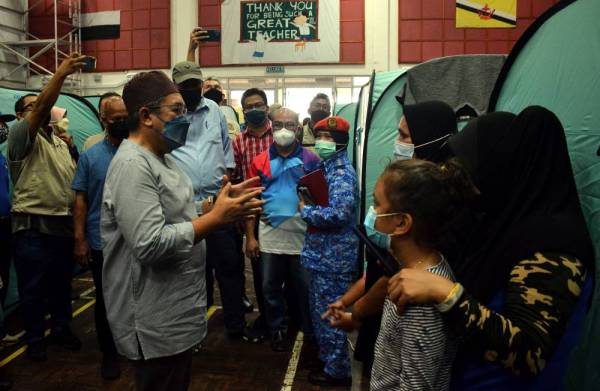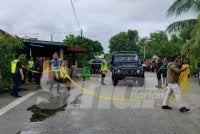Review and improve country's disaster management system, strategic experts urge

Strategic experts weighed in on what has happened for the past one week with KRA Group strategy director Amir Fareed Rahim stating that National Disaster Management Agency (Nadma) could have been more forceful towards the situation.
He said the agency had assets but lacked overall leadership and coordination.
He added that the government needs to have greater clarity in the chain of command and prioritise on recovery operations as well as mitigation efforts in the next few days.
“Speed is of the essence. Coordination is critical and all hands must be on deck. It’s about rapid response to a crisis," he said.
Amir said that a whole nation approach was vital now, adding that there needs to be an overhaul on disaster management in Malaysia while local authorities must be empowered and more equipped.
Meanwhile, crisis management analyst Nordin Abdullah said the formation of Nadma was a good move since there needs to be a central agency that could act quickly and succinctly during times of crisis.
He said an organisation, unlike a committee, would benefit from organisational learning which overtime leads to improved response rates.
However, the question here was whether the agency had enough human resources and assets that could be brought to bear during any given crisis.
“Of course, no crisis response is handled by one agency alone thus the most critical asset in this age of climate change is data and predictive modelling.
“That information then needs to flow across all stakeholders in the government, corporate sectors, non-governmental organisations and broader community,” he told Sinar Daily.
Nordin said Malaysia spent millions of ringgit over the last decade mechanism to deal with natural disasters but perhaps the government would need to look in investing billions instead.
“ Looking at the final equation of economic and human losses we will quickly come to the realisation that spending on disaster reduction is the new baseline in designing a sustainable future,” he added.
Meanwhile, Geostrategist Dr Azmi Hassan said from what happened for the past week, it was clear Malaysia was not prepared in handling unprecedented disasters especially in terms of communications.
He said the country needs an early warning system that is able to alert and continuously update people on floods as well as other natural disasters.
“The national preparedness in terms of communication is not enough.
“A warning system to transmit alert messages about the current conditions should be established to people as a prevention method,” he said.
He said that the emergency alert system the country has now was inadequate, namely the platform to communicate and disseminating current information in times of emergency.
“We have been receiving messages from the National Security Council (NSC) since the pandemic, so Nadma should use this messaging system as a warning system as well,” he said.
Azmi said it was understandable that the east coast states were much more prepared for the floods compared to Selangor as such disaster rarely occurs there.
However, he said excuses given by the authorities about their slow response in Selangor was inexcusable.
Muat turun aplikasi Sinar Harian. Klik di sini!





















